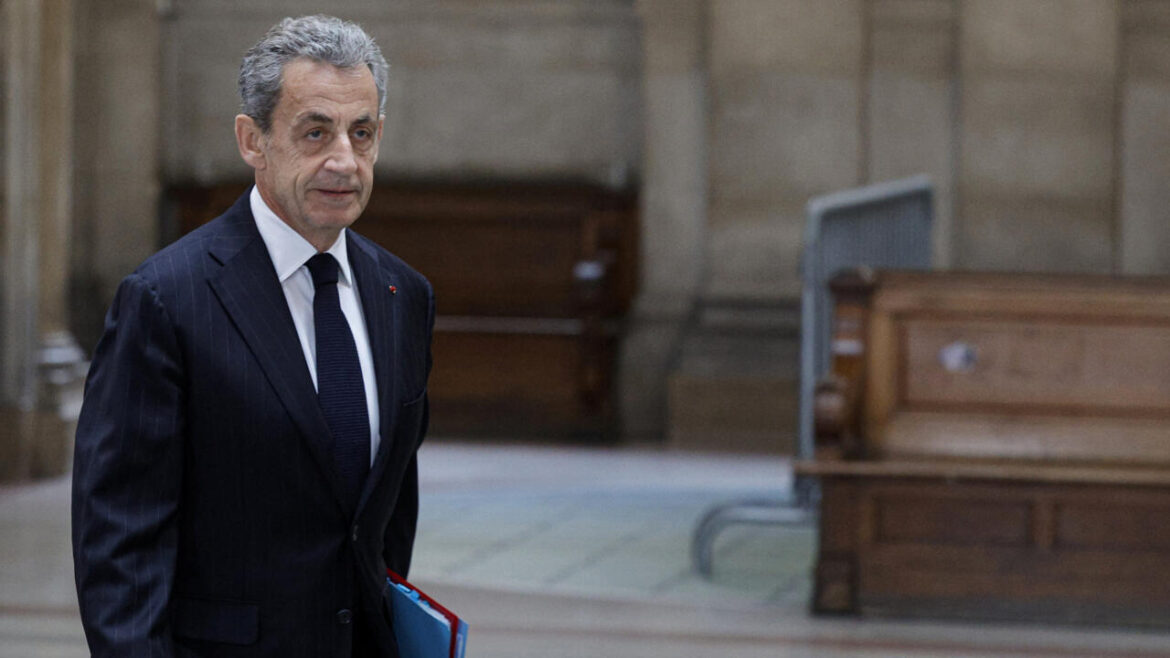Breaking news: Former French President Nicolas Sarkozy Definitively Sentenced to Three Years in Prison in Wiretapping Case
 Nicolas Sarkozy, the former president of France, has been definitively sentenced to three years in prison, with one year to be served under electronic monitoring, following his conviction in the high-profile wiretapping affair.
Nicolas Sarkozy, the former president of France, has been definitively sentenced to three years in prison, with one year to be served under electronic monitoring, following his conviction in the high-profile wiretapping affair.
The verdict, upheld by the Court of Cassation, marks an unprecedented outcome for a former French head of state. Sarkozy has vowed to fight the decision, describing it as a “profound injustice” and reiterating his complete innocence. He plans to appeal the ruling to the European Court of Human Rights (ECHR).
This conviction adds to the mounting legal challenges Sarkozy faces, as he is also set to appear in court in January over allegations of Libyan financing for his 2007 presidential campaign.
Sarkozy’s Final Verdict: Former President Proclaims ‘Profound Injustice’ and Asserts His ‘Complete Innocence’
Nicolas Sarkozy, definitively sentenced in the wiretapping case, has vowed to take judicial responsibility while fighting what he calls a “profound injustice.” The former president intends to appeal the decision to the European Court of Human Rights (ECHR).
Sentenced on Wednesday, December 18, to one year of house arrest under electronic monitoring, Sarkozy declared that he “cannot accept the profound injustice” of the ruling. Confident that “the truth will prevail,” he reiterated his stance, maintaining his complete innocence.
A Battle for Justice
“I refuse to accept the profound injustice inflicted upon me,” Sarkozy stated on X, affirming his right to challenge the decision in the ECHR. He emphasized his determination to prove his innocence and expose the flaws in the case against him.
“I will assume my responsibilities and face the consequences,” the former head of state declared after the Court of Cassation upheld his conviction for corruption and influence peddling. This marks an unprecedented outcome for a former French president.
Sarkozy warned that his ECHR appeal could lead to a condemnation of France, underscoring his claim that the case lacked “calm legal analysis.”
Defending His Innocence
The former president dismissed the accusations, stating, “I am accused of considering assistance for a candidacy that was never proposed, through an intervention that was never made, in exchange for a service that was never requested or provided.”
He also criticized the use of “fragments of conversations between a lawyer and his client,” which he argued are inherently confidential and should not have been admissible as evidence.
Next Steps
Sarkozy is now awaiting a summons, expected within a month, to appear before a sentence enforcement judge. This judge will establish the terms of his electronic monitoring, with the bracelet set to be fitted subsequently.
This ruling coincides with another legal challenge Sarkozy faces. Starting January 6, he is set to appear in the Paris court for four months regarding allegations of Libyan financing for his 2007 presidential campaign.



